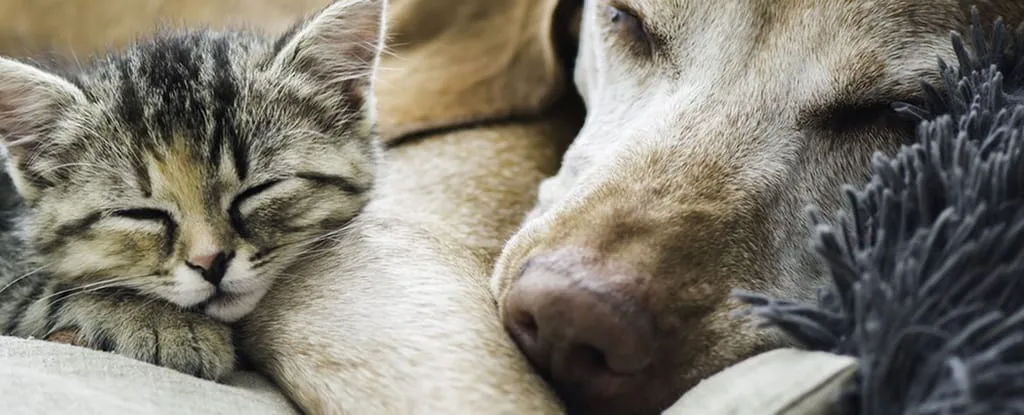Our newest resident on a quest to lose her Muffin Tops!
 We are proud to welcome the newest member of the All Pets family! Muffin, an 11 year old tabby cat, joined our hospital on
June 4th. Muffin was relinquished to us when her owner found she could no longer deal with the cat’s health problems.
We are proud to welcome the newest member of the All Pets family! Muffin, an 11 year old tabby cat, joined our hospital on
June 4th. Muffin was relinquished to us when her owner found she could no longer deal with the cat’s health problems.
Muffin’s condition? She’s fat. Not just overweight, but morbidly obese. As many people know, that degree of obesity can lead to all kinds of problems.
Muffin’s owner had her on a low calorie food, but the cat just really liked to eat and wasn’t much of a fan of exercise, to boot. She was obviously suffering physically at her current weight and well on her way to developing Diabetes if the trend continued.
We agreed to take Muffin in as a new resident and enroll her in “Kitty Fat Camp.” We will document her progress in our newsletters, on Social Media, and it Muffin's upcoming blog posts. We hope that she will be an inspiration and education to other pet owners whose pets may be suffering from excess pounds and the physical ailments that can accompany excess weight.
What’s Wrong with a little Fat?
Truth be told, Muffin is more than a little fat; however even more modest amounts of excess weight can be dangerous to pets. Being overweight can set a pet up for all kinds of health problems:
- Arthritis/Intervertebral Disc Disease: These degenerative processes develop earlier and progress more rapidly in overweight pets. Once a pet has a joint or spinal problem, excess weight puts more stress on the back and joints, meaning a pet may feel more pain than its leaner counterpart. In turn, when a pet is painful he or she will be less active which can promote further weight gain.
- Lethargy: Heavy pets may have a significantly lower tolerance for exercise, resulting in general lethargy. This lethargy may simply be the result of your pet being "out of shape," or may be due to a larger health problem brought on by excess weight. In any case, the end result may mean that a pet does not have the energy to enjoy its life to the fullest.
- Inappropriate Urination: Muffin had a long history of "missing" the litterbox. While this is not always due to excessive pounds, in Muffin's case we feel her weight may be the culprit. Arthritis can make it hard for cats to get in and out of a litterbox, so many chose instead to "go" elsewhere. Additionally, Muffin was just plain ol' too big for regular litterboxes!
- Diabetes: Animals, especially cats, who are overweight are very prone to developing Diabetes Mellitus. This is a condition in which dangerously high levels of blood sugar develop due to a combination of the body not producing enough insulin combined with the body not being effectively able to utilize the insulin it produces (“insulin resistance”). Diabetes is a chronic condition requiring twice daily medication and frequent blood monitoring.
- Heart Disease: Like overweight humans, being significantly heavy puts additional strain on your pet’s heart and can result in heart disease.
- Adipokinesis: Body fat is an active organ which releases proteins and hormones known as Adipokines. These factors signal other parts of the body causing physical responses, including a dangerous form of inflammation called Adipokineschronicinflammation. This condition can lead to myriad health conditions from depression to cancer. Meaning obesity really is a big, fat problem! For more information on Adipokinesis, read here.
Muffin’s Evaluation
With Muffin’s condition being what it is, we needed to first evaluate her general health to see if there was a physical problem either causing her excessive weight or health problems resulting from it. We started with a general health survey:
-
Physical Exam: All patient evaluations start with a physical exam. During this exam, the doctor assesses the patient, making an objective analysis of the entire
pet from the “nose to the tail,” so to speak. During the exam, we also put Muffin on the ground to assess her gait (see how she walks).
- Muffin’s results: Obviously, Muffin is very overweight. She has a pretty poor hair coat including dandruff, which is likely because she cannot groom herself effectively. The doctor also noted moderate to severe joint pain when he palpated her elbows. We also noticed that she walks with a very stiff gait on both her front and back legs.
-
Comprehensive Blood Panel with Urinalysis: This laboratory panel body organ function, blood cell counts, thyroid function and urine health:
- Muffin’s results: Muffin appears to be pretty healthy according to her bloodwork. While kidneys are often a concern for an older cat, hers appear to be functioning normally. Also, despite her excess weight Muffin is not yet showing signs of Diabetes.
-
X-rays: X-Rays allow us to look “inside” the pet, including bone/joint health and soft tissue shape and function. We took full-body Radiographs as well as
concentrated images of her elbows, hips and stifles (knees).
- Muffin’s results: Muffin’s abdomen appeared to be fairly normal. Her heart is enlarged but this appears to be due to heavy fat deposits on the heart and does not appear to be due to heart disease. Muffin has mild to moderate arthritis in both of her elbows – a condition fairly common to older cats, especially those who are overweight. Her hips and other joints look surprisingly good. We found multiple collapsed intervertebral disc spaces and significant spondylosis (“spinal arthritis”) at her mid and lower spine. These findings certainly explain her reluctance to move and her stiff gait.
Muffin's Customized Health Plan
Given Muffin’s activity level, and findings of her exam and labwork, it was obvious that simple caloric restriction is not going to be enough to get Muffin back to a fighting weight. A combination of diet and exercise are ideal for any weight loss plan, but our new kitty’s pain level is likely preventing her from being as active as she should be, while her excess weight is making her pain level worse! Time for a comprehensive weight loss plan including Diet, Exercise and Pain Control.
Diet: Possibly the easiest part of Muffin’s new plan is her strict diet. She has been placed on a prescription canned diet which helps to speed weight loss by increasing a pet's metabolic rate. Canned food is generally considered an optimal diet for all cats, as they are much higher in protein than carbohydrates (which is optimal for a cat’s metabolism as they are carnivores). Canned foods also have a much higher water content than dry kibble so it helps a pet to feel more “full” with each meal which, in turn, helps with portion control. Not only is Muffin on a new food, but her portions are carefully controlled to prevent overindulgence.
In the beginning, we had to monitor Muffin closely to make sure she actually ate. All of her life changes had left her a bit stressed, and as a result she is was eating well. Cats who do not eat for too many days are actually prone to a life-threatening condition called Hepatic Lipidoses (a form of liver failure), so slow weaning onto her new feeding plan and monitoring her intake was essential. Luckily, we found that Muffin thrived on all the love and attention from the staff, and quickly adapted. She is now eating her entire portion and is completely weaned onto her new diet.
Pain Control: Many cats suffer from undiagnosed arthritis, but in Muffin’s case the condition is fairly obvious. Before we can consider too much exercise, we have to manage Muffin’s pain. Unfortunately current treatments for feline arthritis are limited, as cats do not metabolize NSAID pain medication (such as Rimadyl) as well as dogs do.
Adequan: Muffin has been started on an injectable supplement called Adequan. This product has been on the market for decades where it was first used on horses. Adequan (glycosaminoglycan) helps to thicken and nourish the essential fluid in the joint called synovial fluid. This fluid acts as padding and lubrication for joints, while providing nutrients to joint cartilage. The padding and lubrication helps the joint move more easily and decreases joint inflammation while the nutrition helps to prevent cartilage breakdown, protecting the joint further. While Adequan was originally studied in horses and dogs, this supplement has been found to be safe and very effective in feline patients as well. We hope this will give Muffin some relief from her joint pain.
Omega 3 Fatty Acids: Although it adds a few calories, Muffin has also been put on Nordic Naturals Omega 3 fatty acids. These essential fats have significant
anti-inflammatory effects that are beneficial for many conditions. We hope it will help both her arthritis and her skin.
For more information on Omega 3 Fatty Acids, Read our Article.
Laser Therapy & Acupuncture: Both of these integrative medicine treatments are great options for Muffin, as they safely help the body heal while decreasing inflammation and pain. They both are good options to add to almost any pain control regimen.
Acupuncture: This treatment uses thin needles and electrical stimulation to stimulate specific points on the body. The treatment has been shown to alter various biochemical and physiological conditions, helping the body to heal. Acupuncture has been scientifically proven to help with a variety of conditions, including arthritis. We feel that it may be able to give Muffin some pain relief in combination with her other treatments.
Laser Therapy: Therapeutic lasers are becoming increasingly common in both human and veterinary medicine. This treatment uses red and infrared light to stimulate the metabolic centers of the cell. The result is increased cellular energy, increased microcirculation, increased healing speed, decreased inflammation and decreased pain. Laser therapy is often considered a valuable part of an arthritis treatment plan.

Gabapentin: This medication is used in the treatment of uncontrolled neuropathic pain, and is often used in conjunction with other therapies for the treatment of osteoarthritis and spondylosis. Muffin has not yet started this medication, as we would like to assess her response to other treatments first. However, if she doesn’t seem significantly improved in a month, we will add this treatment to Muffin’s list.
Lifestyle: According to her former owner, Muffin was quite the couch potato. Given her weight, her arthritis, and her back disease, it is not surprising that she was reluctant to move. Unfortunately, this became a vicious cycle with her weight issues over the years. The fact is Muffin needs to get out and move, so she has been put on an exercise plan! This exercise plan is based on active play—meaning that the staff will interact with Muffin and encourage her to play (as opposed to passive play where a toy is made available for a pet with the expectation that they will play alone). Our staff is now tasked with making sure our new charge gets some exercise every day. Together they benefit from our safe fenced back patio where staff and patients can get some fresh air.
Just as with any exercise plan, we have to start slow. Muffin’s plan starts with 10 minutes of exercise every day. Truthfully, she’s a little reluctant to participate preferring instead to lie in comfy corners; so our staff is getting their exercise too. They take Muffin (22lbs of cat is a lot to lift) to the center of the patio so that she gets up and walks to her preferred corner. They do this over and over to make sure she gets her steps in! Over time, we will increase the time, steps and intensity of her exercise. We hope to eventually convince her to participate in feather toy and laser pointer play and will even work to get her used to walking on a leash with a harness!
Muffin has a long road ahead of her, but our doctors and staff are ready for the challenge. We hope that the process will be life-changing for Muffin and inspirational for our clients with overweight pets. We are excited to have her be the first participant in our Kitty Fat Camp program.
Stay tuned to our newsletter and on Social Media for updates on Muffin!



